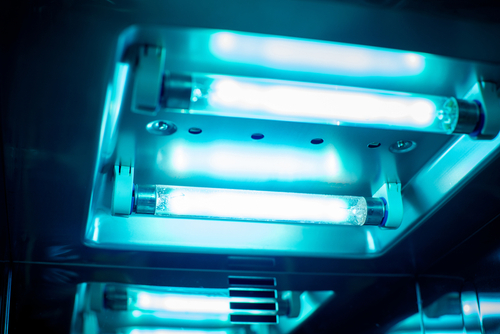
A study commissioned by NJ TRANSIT would have Rutgers University’s Center for Advanced Infrastructure and Transportation (CAIT) look into the use of ultraviolet-c light for disinfecting the agency’s fleet of buses from viruses like COVID-19.
The effort is the latest in the transit organization’s commitment to looking into and deploying the latest technology and best practices to create a clean and safe environment for its customers and employees.
The study will examine the effectiveness of the UVC wavelength in killing viruses. Additionally, the study will electronically map bus interiors to figure out what the best placement of UVC sources would be if the technology is found to work adequately.
UVC is light in the germicidal range and has proven to be effective at disinfecting water and other surfaces. While not the same as UVA and UVB light found in exposure to sunlight, the UVC light is thought to be effective in reducing the risk of infection due to the coronavirus. The UVC disinfection would not be used when customers are on board, NJ TRANSIT said.
“NJ TRANSIT is always looking to be on the cutting edge of technology,” said NJ TRANSIT President & CEO Kevin Corbett. “As we prepare for our customers’ return to the system, it is incumbent upon us to explore every cleaning and disinfecting option available. NJ TRANSIT will continue to take any and all measures to ensure the safest and cleanest transit environment possible for our customers and employees.”
Currently, the transit agency cleans and disinfects its vehicles every 24 hours, including hard surface cleaning and disinfecting handholds, armrests, seats, and restrooms. Additionally, frequent touchpoints, such as ticket vending machines, handrails, and door handles, occurs once every shift.
The agency said it is working closely with the NJ Department of Health, as well as with other state and federal agencies, to carefully monitor and respond to emerging health issues.